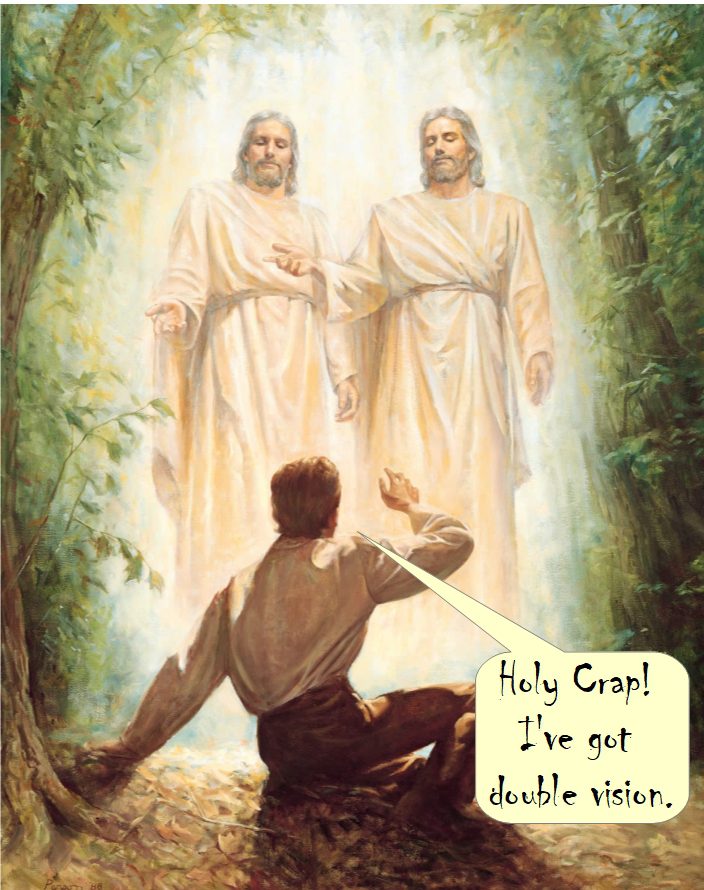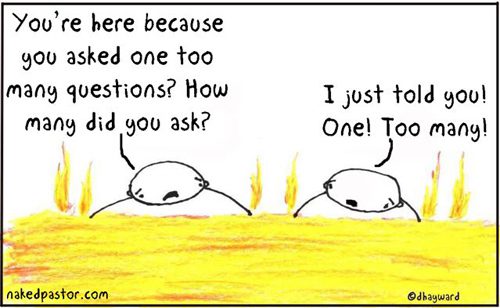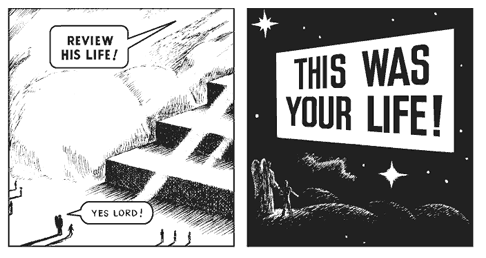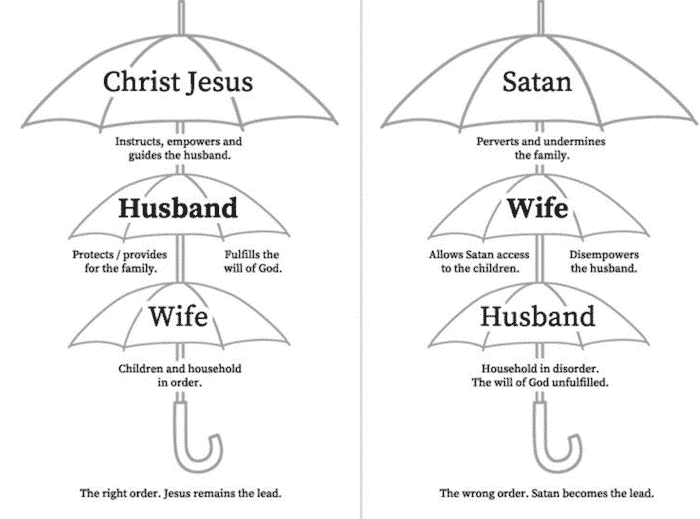
Several weeks ago, an Evangelical man named Don Camp left the following comment on the Rejecting Jesus blog:
I will take a look at your [Neil Robinson’s] blog posts, but honestly I don’t expect anything more than I have read in many atheist apologies. And you probably would say the same of my brief appeal to the classic cosmological and teleological arguments. So we are at an impasse. But since you have a background in literature, I will add this one.
The Bible is a book made up of 66 books (Protestant). They were written over about one thousand years time, and probably include pieces that are older than the oldest OT book. There are more than 20 different authors. Yet the Bible has one THEME and a COHERENT PLOT and is UNIFIED with no rabbit trails or strands of thought that are unconnected to the central theme.
If the Bible were written by one author, that would be remarkable in a book that ranges so broadly across history. Written by multiple authors, it is more than remarkable. Even given that there were editors and a selection of books from among a larger number, that is remarkable.
The INTRODUCTION in Genesis 1-6 and particularly in Genesis 3 is so necessary to the larger narrative that it is inconceivable that the plot could be created apart from that background because it includes an introduction to the primary characters and the first and underlying CONFLICT for the whole book. And that is to say nothing of the DENOUEMENT in Revelation that ties together the narrative in a conclusion that resolves all the conflicts.
It does this while being comprised of pieces in many different genres written in styles that even now are recognized to be some of the best of all literature written, ancient or modern.
As a student of literature, I cannot imagine how that can have happened. It has no equal in all of literature. I can only explain it by divine superintendency. And that implies a God.
Yesterday, Neil Robinson, the CEB (chief executive blogger) of Rejecting Jesus, responded to Camp. His response is posted in full below.
— begin article —
Dear Don,
Why are you not a Mormon? I mean, you appeal to the evidence of consistency across the 66 books of the bible, claim that the gospel writers remained true to an oral tradition (despite John’s gospel being markedly different from the other three) and insist there is no difference between the original apostles’ gospel and Paul’s (when Paul is adamant there is.) In fact, there is even better evidence that Mormonism is true.
First off, Joseph Smith saw the resurrected Jesus in person! Not only Jesus but God the Father too. And they spoke to him! He relates the story himself, so unlike the gospels, this is no second hand reportage:
I saw two Personages, whose brightness and glory defy all description, standing above me in the air. One of them spake unto me, calling me by name and said, pointing to the other—This is My Beloved Son. Hear Him!
Following this, young Joseph was instructed to translate the Book of Mormon from some golden plates. We don’t have to take his word for it that these plates existed because Joseph had witnesses:
Eleven official witnesses and several unofficial witnesses testified to the existence of the golden plates and, in some cases, to dramatic supernatural confirmation of their truth. Meticulous research on these witnesses has confirmed their good character and the veracity of their accounts.
Impressive, don’t you think? We have no such affidavits for the gospel writers – we don’t even know who they were!
Also like the Bible, the Book of Mormon had multiple authors (Joseph Smith was only translating, remember):
Furthermore, in recent years, rigorous statistical analysis strongly indicates that neither Joseph Smith nor any of his known associates composed the English text of the Book of Mormon. In fact, research suggests that the book was written by numerous distinct authors.
And yet, the Book of Mormon tells a story even more consistent than the Bible’s!
Better still,
the Holy Ghost affirms the authenticity of the Book of Mormon, just as he does the Bible: the conclusion of the matter is that much modern evidence supports the more powerful witness of the Holy Ghost that the Book of Mormon is true. Joseph Smith, who translated it, had to be what he said he was, a prophet of God.
Finally, the growth of the Church of The Latter Day Saints demonstrates its truth and saving power. Its early expansion was greater than that of the first-century church.
Amazing, don’t you think, Don?
I expect like me, you reject all this so-called evidence and regard Mormonism as so much bunk. But on what basis? What causes you to dismiss the teaching of the Latter Day Saints while embracing the equally incredible, magic-infused stories of the Bible? As the Mormon church says (sounding not unlike yourself when talking about the Bible):
Persons who choose to dismiss the Book of Mormon must find their own ideas for explaining it and the mounting evidence for its authenticity.
When you arrive at the criteria you apply in rejecting Mormonism, you’ll have arrived at the reasons I and many others reject your beliefs.
— end of article —
In classic, predictible presuppositionalist fashion, Camp rejected Neil’s response out of hand:
There are multiple reason for rejecting Mormonism. The primary reason is similar to discerning between a fake $20 bill and the real thing. The fake just doesn’t feel like the real thing. Of course, that test requires that one knows what a $20 bill feels like. Anyone who does not know is easily fooled.
In fact, if you don’t know what the real thing is like, it is impossible to identify a fake. You might notice an ink smudge and a difference in paper, but who is to say one is fake and the other is not?
But since you have a knowledge of literature, Neil, why not apply those standards? Is the Bible and the narrative in the Bible coherent? Does it stick together and develop a single theme across the whole? Do you know what the theme of the Bible is, Neil?
Remember that the Mormons tell us that the Book of Mormon is an extension of the Bible and that the people of the Americas were related to the Jews and held to the basic truths of the Jews. (Remember also the Mormons believe that Jesus appeared to these people in the New World shortly after his resurrection.) So if you put the Torah and the Book of Mormon together, is the narrative coherent? Does it develop a single theme? The Old testament and the New Testament are a coherent whole, but I do not think the Old Testament and the Book of Mormon are.
That lack of coherency becomes even more obvious when we compare God in the Old Testament with God in the Book of Mormon. The person of Jesus is also inconsistent in the Book of Mormon with the Bible.
Of course, the standard explanation by Latter Day Saints is that the Bible has not been adequately translated, though I know of no place where they can demonstrate that claim.
Finally, there is a matter of provenance. We know in very good detail where the Bible came from. There are many copies, especially for the New Testament, and there are many commentaries of both the OT and NT from very early in the their history. What is the provenance of the Book of Mormon? It apparently appeared magically out of nowhere pretty recently. No mention in any other literature of its existence. No copy is available to examine.
That is not to speak of the total lack of any archaeological evidence for the Mormon claims of Jews in the Americas.
So, I would say the Book of Mormon fails on all levels.
Camp’s Evangelical presuppositions keep him from seeing the evidence staring him in the face: that Mormonism is every bit as credible as, if not more than, Christianity. Further, atheists reject Christianity for some of the very reasons he rejects Mormonism.
Bruce Gerencser, 66, lives in rural Northwest Ohio with his wife of 45 years. He and his wife have six grown children and thirteen grandchildren. Bruce pastored Evangelical churches for twenty-five years in Ohio, Texas, and Michigan. Bruce left the ministry in 2005, and in 2008 he left Christianity. Bruce is now a humanist and an atheist.
Connect with me on social media:
Your comments are welcome and appreciated. All first-time comments are moderated. Please read the commenting rules before commenting.
You can email Bruce via the Contact Form.








